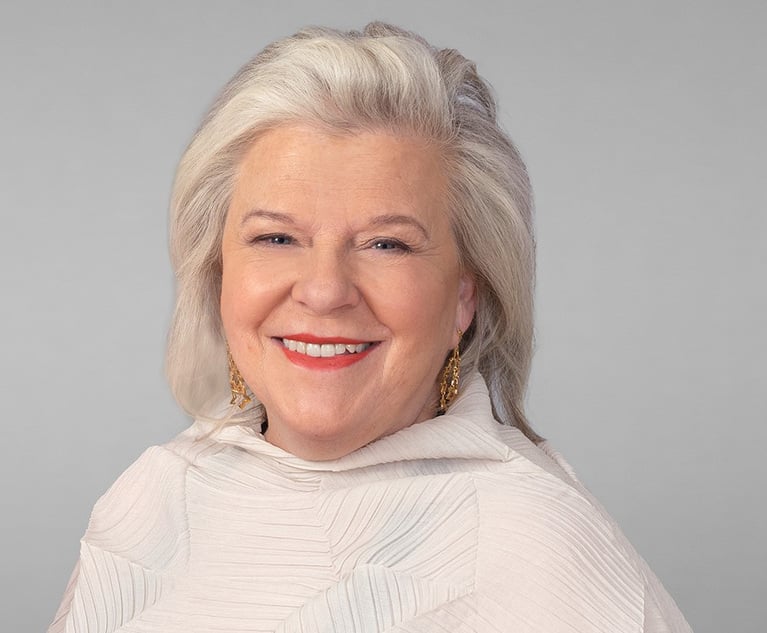When Will Chinese Firms Start Investing in Their U.S. Offices?
Many are little more than "window offices"—a liaison point for client relationships. But to become a truly global player, Chinese firms will need to change that.
March 10, 2020 at 12:00 PM
4 minute read

In January, King & Wood Mallesons hired the entirety of U.K. firm Mishcon de Reya's legacy New York office. The nine-lawyer team is one of the largest group hires the Sino-Australian firm has ever made for its U.S. operations; it's perhaps also one of the largest ever made in the United States by a Chinese firm.
While the expansion may be new, King & Wood Mallesons has been in the United States for nearly 20 years. Legacy King & Wood opened a Silicon Valley office, its first outside of China, in 2001. The firm launched its second U.S. office in New York in 2008. And, of course, King & Wood wasn't the only one.
In 1993, only four years into its existence, JunHe launched the first overseas office of any Chinese law firm, in New York. The firm's Silicon Valley office was opened in 2010 in Palo Alto. Another major firm, Zhong Lun, followed suit much later. It opened its first U.S. office in New York in 2013. In 2016, the firm took over the legacy San Francisco and Los Angeles offices of Dacheng as the latter combined with Dentons.
Despite a long history, Chinese firms' U.S. operations remain relatively invisible. In fact, many are often described as "window offices"—those that primarily serve as a liaison office or point of contact for client relationships. Like other overseas offices, U.S. offices are usually complementary to a firm's home base in China. Traditionally, they are staffed by U.S.-qualified lawyers, but few are actually practicing U.S. law. Partners based in the United States often work on matters handled by domestic Chinese offices; sometimes they help Chinese clients find other U.S. lawyers; and they occasionally need to be in the United States for personal reasons, immigration-related or otherwise.
On the other hand, around the time of JunHe's New York launch, China started allowing foreign law firms to set up representative offices. Nearly 30 years later, despite the various sizes of foreign firms' China operations, it's safe to say that they have had a bigger influence than most Chinese firms' U.S. offices. This, of course, has many causes, chiefly the disparity in the roles of the Chinese and American legal professions in the world.
Chinese firms are cautious about investing in the United states. They have increased investment in Hong Kong in recent years, but U.S. offices still seem one step too far. Opening a physical office on either coast isn't hard, but finding the right people is. Most Chinese firms have made significant financial improvements, but their rates and compensation are still a far cry from the top tier of U.S. firms.
Having a successful U.S. practice could be essential to many firms' goal of becoming truly global players. In the cross-border matters Chinese firms handle, they would no longer need to share work with a U.S. firm.
Before taking over the Mishcon team, King & Wood Mallesons had already been making a noticeable push in its U.S. practice for more than a year. Compared with the more general cross-border expertise evident at many Chinese firms' U.S.-based lawyers, King & Wood has made more targeted hires.
In late 2018, following the Trump administration's move to restore sanctions against Iran, the firm recruited a former Manhattan assistant district attorney who specialized in prosecuting sanctions law violations. After the administration pushed through its tax reform bill, the firm recruited a tax partner from Cahill Gordon & Reindel. The most recent hires, which include several patent litigators, came as technology and intellectual property took center stage in the never-ending bilateral trade dispute between China and the United States.
Others will be watching. If King & Wood Mallesons is successful, more will follow suit.
Email: [email protected]
This content has been archived. It is available through our partners, LexisNexis® and Bloomberg Law.
To view this content, please continue to their sites.
Not a Lexis Subscriber?
Subscribe Now
Not a Bloomberg Law Subscriber?
Subscribe Now
NOT FOR REPRINT
© 2024 ALM Global, LLC, All Rights Reserved. Request academic re-use from www.copyright.com. All other uses, submit a request to [email protected]. For more information visit Asset & Logo Licensing.
You Might Like
View All
Simpson Thacher Launches in Luxembourg With Hires From A&O Shearman, Clifford Chance
3 minute read

A&O Shearman's Former U.S. Co-Chair to Leave Partnership

Law Firms Mentioned
Trending Stories
Who Got The Work
Michael G. Bongiorno, Andrew Scott Dulberg and Elizabeth E. Driscoll from Wilmer Cutler Pickering Hale and Dorr have stepped in to represent Symbotic Inc., an A.I.-enabled technology platform that focuses on increasing supply chain efficiency, and other defendants in a pending shareholder derivative lawsuit. The case, filed Oct. 2 in Massachusetts District Court by the Brown Law Firm on behalf of Stephen Austen, accuses certain officers and directors of misleading investors in regard to Symbotic's potential for margin growth by failing to disclose that the company was not equipped to timely deploy its systems or manage expenses through project delays. The case, assigned to U.S. District Judge Nathaniel M. Gorton, is 1:24-cv-12522, Austen v. Cohen et al.
Who Got The Work
Edmund Polubinski and Marie Killmond of Davis Polk & Wardwell have entered appearances for data platform software development company MongoDB and other defendants in a pending shareholder derivative lawsuit. The action, filed Oct. 7 in New York Southern District Court by the Brown Law Firm, accuses the company's directors and/or officers of falsely expressing confidence in the company’s restructuring of its sales incentive plan and downplaying the severity of decreases in its upfront commitments. The case is 1:24-cv-07594, Roy v. Ittycheria et al.
Who Got The Work
Amy O. Bruchs and Kurt F. Ellison of Michael Best & Friedrich have entered appearances for Epic Systems Corp. in a pending employment discrimination lawsuit. The suit was filed Sept. 7 in Wisconsin Western District Court by Levine Eisberner LLC and Siri & Glimstad on behalf of a project manager who claims that he was wrongfully terminated after applying for a religious exemption to the defendant's COVID-19 vaccine mandate. The case, assigned to U.S. Magistrate Judge Anita Marie Boor, is 3:24-cv-00630, Secker, Nathan v. Epic Systems Corporation.
Who Got The Work
David X. Sullivan, Thomas J. Finn and Gregory A. Hall from McCarter & English have entered appearances for Sunrun Installation Services in a pending civil rights lawsuit. The complaint was filed Sept. 4 in Connecticut District Court by attorney Robert M. Berke on behalf of former employee George Edward Steins, who was arrested and charged with employing an unregistered home improvement salesperson. The complaint alleges that had Sunrun informed the Connecticut Department of Consumer Protection that the plaintiff's employment had ended in 2017 and that he no longer held Sunrun's home improvement contractor license, he would not have been hit with charges, which were dismissed in May 2024. The case, assigned to U.S. District Judge Jeffrey A. Meyer, is 3:24-cv-01423, Steins v. Sunrun, Inc. et al.
Who Got The Work
Greenberg Traurig shareholder Joshua L. Raskin has entered an appearance for boohoo.com UK Ltd. in a pending patent infringement lawsuit. The suit, filed Sept. 3 in Texas Eastern District Court by Rozier Hardt McDonough on behalf of Alto Dynamics, asserts five patents related to an online shopping platform. The case, assigned to U.S. District Judge Rodney Gilstrap, is 2:24-cv-00719, Alto Dynamics, LLC v. boohoo.com UK Limited.
Featured Firms
Law Offices of Gary Martin Hays & Associates, P.C.
(470) 294-1674
Law Offices of Mark E. Salomone
(857) 444-6468
Smith & Hassler
(713) 739-1250










